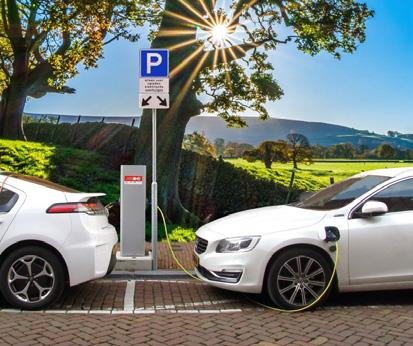???????? NEWS
News ECA calls for diesel and petrol vehicles to be banned by 2030 The UK Government is under pressure to bring forward the ban on new diesel and petrol vehicles to 2030, as the Electrical Contractors Association (ECA) threw its weight behind the plan. Earlier this year, the UK Government brought forward its ban on diesel and petrol vehicles to 2035, having previously pledged 2040 as the cut off date. Now, the ECA, along with other organisations such as Friends of the Earth and the Committee on Climate Change, is calling for the ban to be brought forward further. A 2030 cut off wouldn’t be unprecedented, many other countries around the world have already committed to that date. In fact, our closest neighbour, Ireland, has vowed to ban the sale of new diesel or petrol vehicles by 2030, joining both Sweden and the Netherlands. Norway is being even more ambitious, cutting off internal combustion engine sales in 2025. While the ECA backs the 2030 date for the UK, rather than the more ambitious 2025 date, the organisation admits that bringing the ban forward by five years is only feasible if there is further investment in the UK’s electric charging infrastructure.
Is the UK electrical sector weathering the Covid-19 storm? There’s no denying that Covid-19 has ravaged the UK economy with many jobs lost in various sectors. However, new data from Screwfix has suggested that UK tradespeople, which includes electricians, are weathering the storm, and are either at the same or better business levels than they were 12 months ago. The research was undertaken independently on behalf of Screwfix, but appears to suggest that the UK electrical industry has been stunningly resilient throughout the Covid-19 pandemic. In fact, of the plumbers, electricians, builders and carpenters who were questioned in Screwfix’s Trade Pulse index, 56% say they are preparing as many quotes for jobs as they were this time last year, while a shocking 32% said they were busier than expected. Additionally, thanks to the key worker designation bestowed upon electricians, many continued to work during the UK’s lockdown. While there aren’t specific numbers for those working in the electrical sector, some 72% of UK tradespeople continued to work during April, while that rose to 77% in May. All these figures paint an optimistic future for the UK electrical sector over the next 12 months, with more than two thirds of respondents expecting business activity to remain the same or improve.
6 Electrical Review | September 2020








